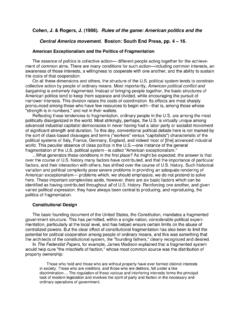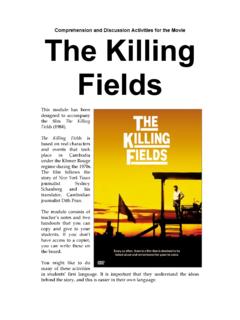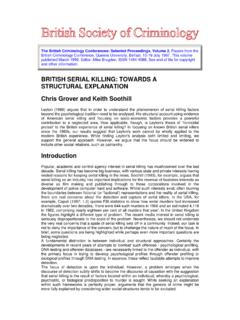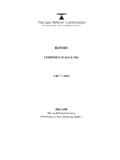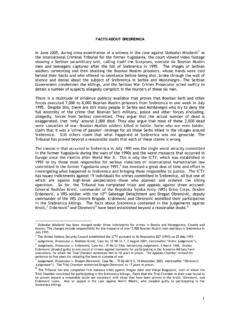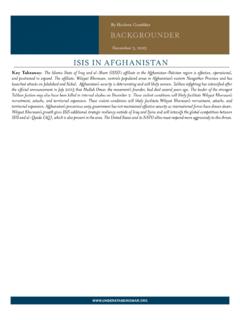Transcription of Grossman, D. (2009). On killing: The psychological …
1 Grossman, D. (2009). On killing : The psychological costs of learning to kill in war and society. New York: Back Bay Books. Introduction killing and Science: On Dangerous Ground This is the time of year when people would slaughter, back when people did that Rollie and Eunice Hochstetter, I think, were the last in Lake Wobegon. They kept pigs, and they'd slaughter them in the fall when the weather got cold and the meat would keep. I went out to see them slaughter hogs once when I was a kid, along with my cousin and my uncle, who was going to help Rollie.
2 Today, if you are going to slaughter an animal for meat, you send it in to the locker plant and pay to have the guys there do it. When you slaughter pigs, it takes away your appetite for pork for a while. Because the pigs let you know that they don't care for it. They don't care to be grabbed and dragged over to where the other pigs went and didn't come back. It was quite a thing for a kid to see. To see living flesh, and the living insides of another creature. I expected to be disgusted by it, but I wasn't I was fascinated. I got as close as I could.
3 And I remember that my cousin and I sort of got carried away in the excitement of it all and we went down to the pigpen and we started throwing litde stones at pigs to watch them jump and squeal and run. And all of a sudden, I felt a big hand on my shoulder, and I was spun around, and my uncle's face was three inches away from mine. He said "If I ever see you do that again I'll beat you 'til you can't stand up, you hear?" And we heard. I knew at the time that his anger had to do with the slaughter, that it was a ritual and it was done as a Ritual.
4 It was done swiftly, and there was no foolishness. No joking around, very little conversation. People went about their jobs men and women knowing exactly what to do. And always with respect for the animals that would become our food. And our throwing stones at pigs violated this ceremony, and this ritual, which they went through. Rollie was the last one to slaughter his own hogs. One year he had an accident; the knife slipped, and an animal that was only wounded got loose and ran across the yard before it fell. He never kept pigs after that.
5 He didn't feel he was worthy of it. It's all gone. Children growing up in Lake Wobegon will never have a chance to see it. It was a powerful experience, life and death hung in the balance. A life in which people made do, made their own, lived off the land, lived between the ground and God. It's lost, not only to this world: but also to memory. Garrison Keillor "Hog Slaughter" Why should we study killing ? One might just as readily ask, Why study sex? The two questions have much in common. Richard Heckler points out that "it is in the mythological marriage of Ares and Aphrodite that Harmonia is born.
6 " Peace will not come until we have mastered both sex and war, and to master war we must study it with at least the diligence of Kinsey or Masters and Johnson. Every society has a blind spot, an area into which it has great difficulty looking. Today that blind spot is killing . A century ago it was sex. For millennia man sheltered himself and his family in caves, or huts, or one-room hovels. The whole extended family grandparents, parents, and children all huddled together around the warmth of a single fire, within the protection of a single wall.
7 And for thousands of years sex between a husband and wife could generally only take place at night, in the darkness, in this crowded central room. I once interviewed a woman who grew up in an American Gypsy family, sleeping in a big communal tent with aunts, uncles, grandparents, parents, cousins, brothers, and sisters all around her. As a young child, sex was to her something funny, noisy, and slightly bothersome that grown-ups did in the night. In this environment there were no private bedrooms. Until very recently in human history, for the average human being, there was no such luxury as a bedroom, or even a bed.
8 Although by today's sexual standards this situation may seem awkward, it was not without its advantages. One advantage was that sexual abuse of children could not happen without at least the knowledge and tacit consent of the entire family. Another, less obvious benefit of this age-old living arrangement was that throughout the life cycle, from birth to death, sex was always before you, and no one could deny that it was a vital, essential, and a not-too-mysterious aspect of daily human existence. And then, by the period that we know as the Victorian era, everything had changed.
9 Suddenly the average middle-class family lived in a multiroom dwelling. Children grew up having never witnessed the primal act. And suddenly sex became hidden, private, mysterious, frightening, and dirty. The era of sexual repression in Western civilization had begun. In this repressed society, women were covered from neck to ankle, and even the furniture legs were covered with skirts, since the sight of these legs disturbed the delicate sensitivities of that era. Yet at the same time that this society repressed sex, it appears to have become obsessed by it.
10 Pornography as we know it blossomed. Child prostitution flourished. And a wave of sexual child abuse began to ripple down through the Sex is a natural and essential part of life. A society that has no sex has no society in one generation. Today our society has begun the slow, painful process of escaping from this pathological dichotomy of simultaneous sexual repression and obsession. But we may have begun our escape from one denial only to fall into a new and possibly even more dangerous one. A new repression, revolving around killing and death, precisely parallels the pattern established by the previous sexual repression.

